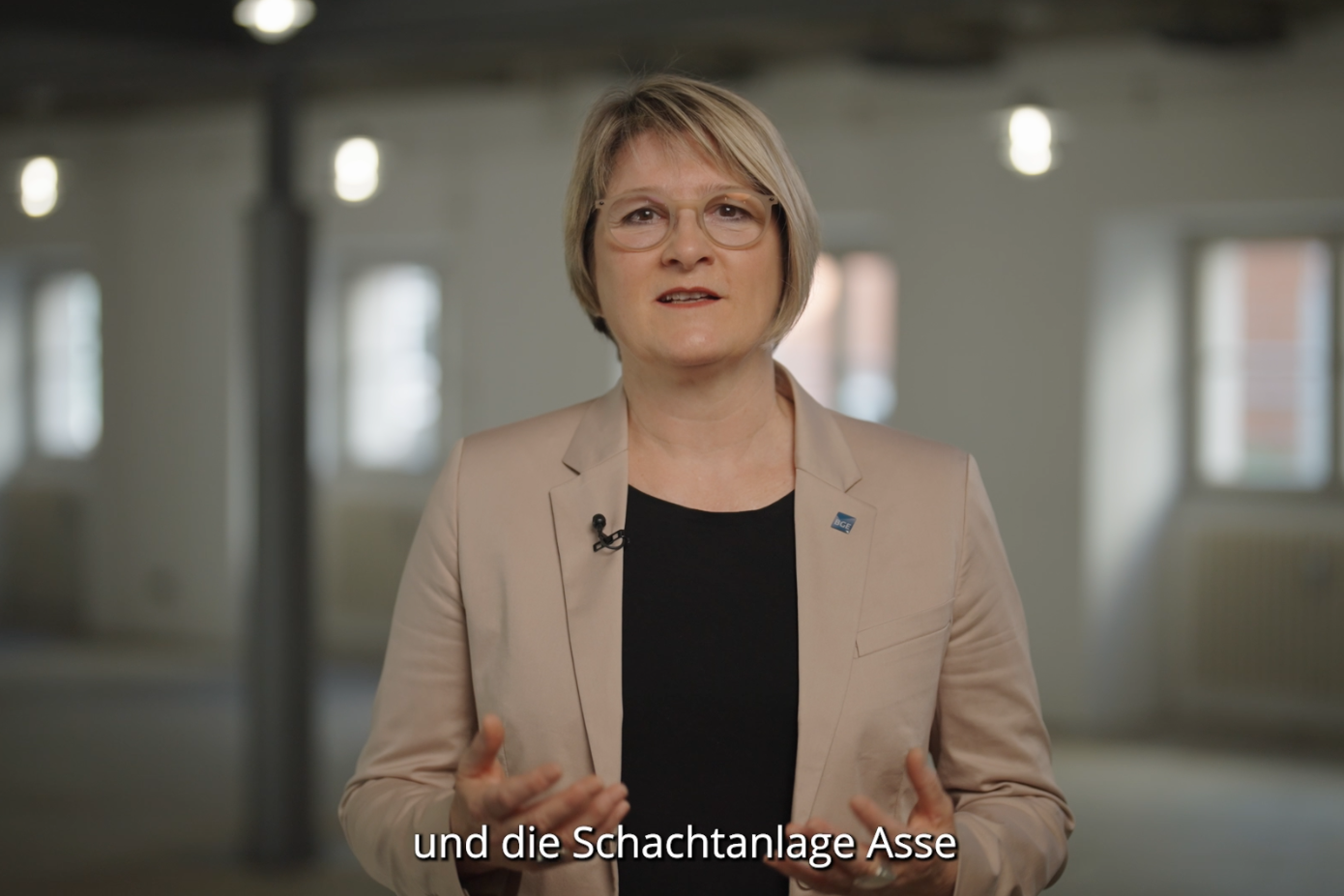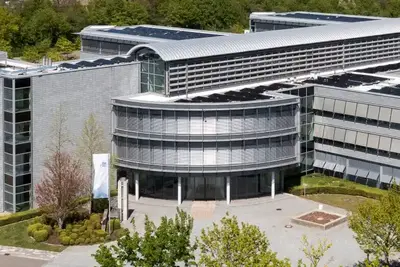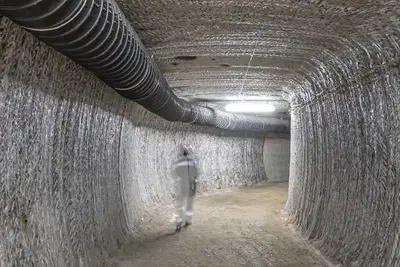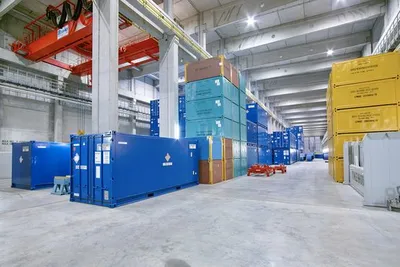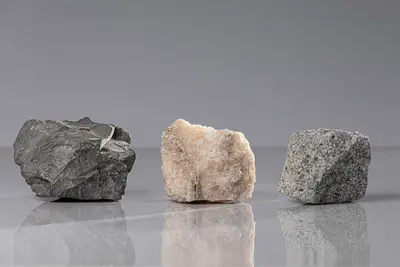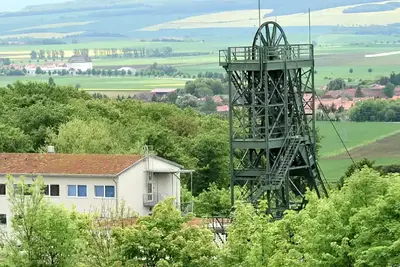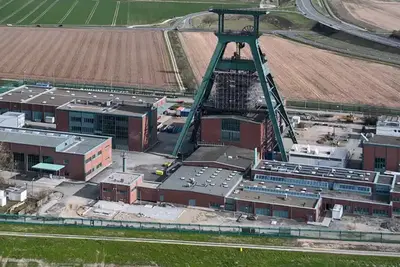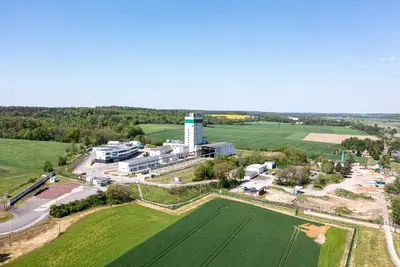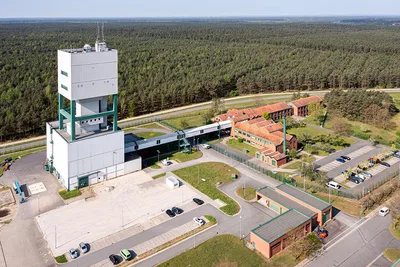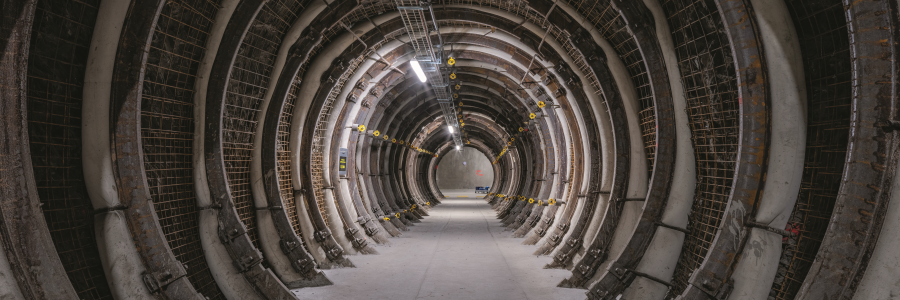
International collaboration by the BGE
The goals of international collaboration regarding the disposal of radioactive waste are to learn from one another, to closely monitor the state of the art of science and technology beyond our own borders, and to share our own expertise.
To this end, the BGE is active in various bodies, including the International Atomic Energy Agency (IAEA), the Organisation for Economic Co-operation and Development (OECD), and other international organisations. There is also a regular exchange of experience and research insights between the repository-operating organisations of the various countries.
Across national boundaries
The BGE is in particularly close contact with individual implementing organisations. Bilateral cooperation agreements provide an opportunity for an even more intensive exchange of experience via shared projects, regular workshops, or talks.
Collaborations are maintained between the BGE and the disposal organisations in Sweden (SKB), the United Kingdom (NWS) and Switzerland (NAGRA), as well as with the Japanese implementer NUMO. This provides the BGE with insights into experiences with host rocks that are also candidates for the disposal of high-level radioactive waste in Germany.

The flags of the two cooperation partners Germany and Sweden are flying in front of the information centre in Äspö (Sweden)
Bilateral cooperation
SKB, Sweden
Since 2020, a cooperation agreement has been in place between the BGE and the Swedish Nuclear Fuel and Waste Management Company (SKB; external link). Discussions with SKB centre around technical topics and questions of communication.
NAGRA, Switzerland
The BGE has been collaborating with the Swiss National Cooperative for the Disposal of Radioactive Waste (Nagra; external link) since 2020. Reciprocal visits at the management and expert level permit an intensive exchange of experience and are beneficial both to the BGE and Nagra.
NWS, United Kingdom
The cooperation agreement with the United Kingdom has been in place since 2019, when the BGE agreed to a collaboration with the British project sponsor, the Nuclear Decommissioning Authority (NDA). Following a merger of several British organisations relating to the storage of radioactive waste, the NDA was incorporated into Nuclear Waste Services (NWS; external link). The cooperation agreement remains in place and is substantiated through various collaborations.
NUMO, Japan
A cooperation agreement has been in place between the Nuclear Waste Management Organisation of Japan (NUMO; external link) and the BGE since 2018. Dialogue with NUMO takes place primarily via BGE TEC, a subsidiary of the BGE.
Multilateral cooperation
OECD-NEA
The OECD aims to promote economic collaboration and development between its 28 member countries. The Nuclear Energy Agency (NEA; external link) within the OECD deals specifically with the topic of nuclear energy and, by engaging in cooperation, aims not only to increase safety but also to bring about improvements in technology, science, the environment and relevant legislation. There are various working groups and committees within the NEA. The BGE is represented on the Radioactive Waste Management Committee (RWMC; external link).
EURAD
The European Joint Programme on Radioactive Waste Management (EURAD; external link) is a European collaboration for the safe handling of radioactive waste, especially in the area of research and development. The organisations represented within EURAD include project sponsors such as the BGE as well as technical organisations and research establishments.
EDRAM
The International Association for the Environmentally Safe Disposal of Radioactive Materials (EDRAM; external link) was founded in 1998 to promote the exchange of knowledge, experience and information between its members. EDRAM has 11 member countries: Belgium, Canada, Finland, France, Germany, Japan, Spain, Sweden, Switzerland, the United Kingdom and the USA.
In 2025-2026, the BGE will hold the presidency within EDRAM for two years, organising and driving forward the discussions and fruitful exchange between the member organisations.
Insights into the EDRAM collaboration with Iris Graffunder
